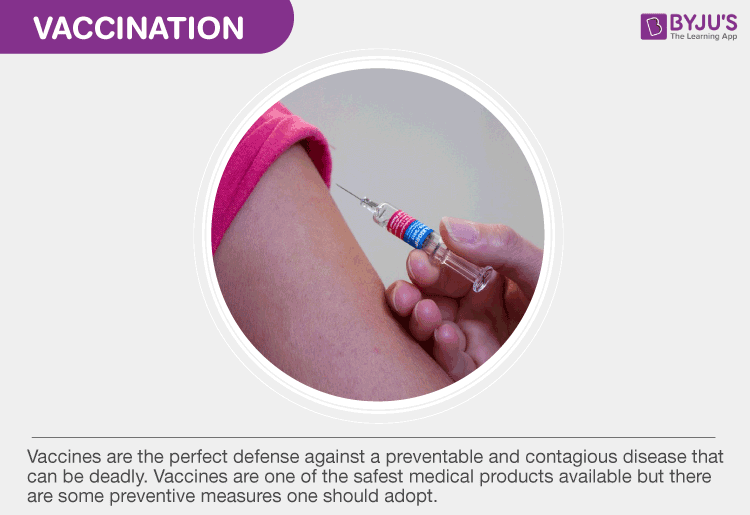
A vaccine is a preparation that improves immunity to a particular disease. It is a biologically prepared product which contains typical agents resembling a microorganism that causes diseases, made from weakened or dead forms of the microbes, one of its surface proteins or its toxins. It helps in the stimulation of the immune system and to identify the invaded microbes as the foreign agent and destroy it so that the immune system can be recognized and to destroy any microorganism encountered later.
You need to understand the difference between vaccinations, vaccines, and immunizations. Let’s discuss them one after the other.
- A vaccine is an antigenic substance that develops immunity against a disease which can be delivered through needle injections or by mouth or by aerosol.
- Vaccination is the injection of a dead or weakened organism that forms immunity against that organism in the body.
- Immunization is the process by which an animal or a person stays protected from diseases.
Vaccines are Safe and Effective
Vaccines are the perfect defense against a preventable and contagious disease that can be deadly. Vaccines are one of the safest medical products available, but there are some preventive measures one should adopt. Precise information about the values of vaccines along with their possible side-effects assists people to make decisions on vaccines.
How Well Do Vaccines Work?
No medicine can be labeled as perfect, but most of the vaccines produce immunity for about 90-100% of the cases. Certainly, better sanitation and hygiene can help prevent the spread of diseases, but the germs that are responsible, still stay around. The germs continue to make people sick as long as their existence.
Every vaccine has to be licensed by the Food and Drug Administration abbreviated by FDA before being brought into use in the United States. A vaccine needs to go through extensive tests to confirm that it is safe before the approval of FDA. Among these tests are the clinical tests trials that compare groups of people who get a control such as a placebo with the group of people who get a vaccine. A vaccine is approved only when FDA confirms that it is safe for intended use.
When you look at a history of disease that can be prevented by a vaccine, you will see that the number of cases starts to go down when a vaccine is licensed.
Vaccines save millions of lives every year. When a particular section of a city or town is immunized against a communicable disease, several members of the same community are shielded against the diseases as the opportunity for an outbreak is minimized. The principle of immunity refers to the control of various contagious diseases that involve rabies, mumps, influenza, measles and pneumococcal disease.
To know more about Vaccines and Vaccination, visit BYJU’S.

Vaccines are made up of